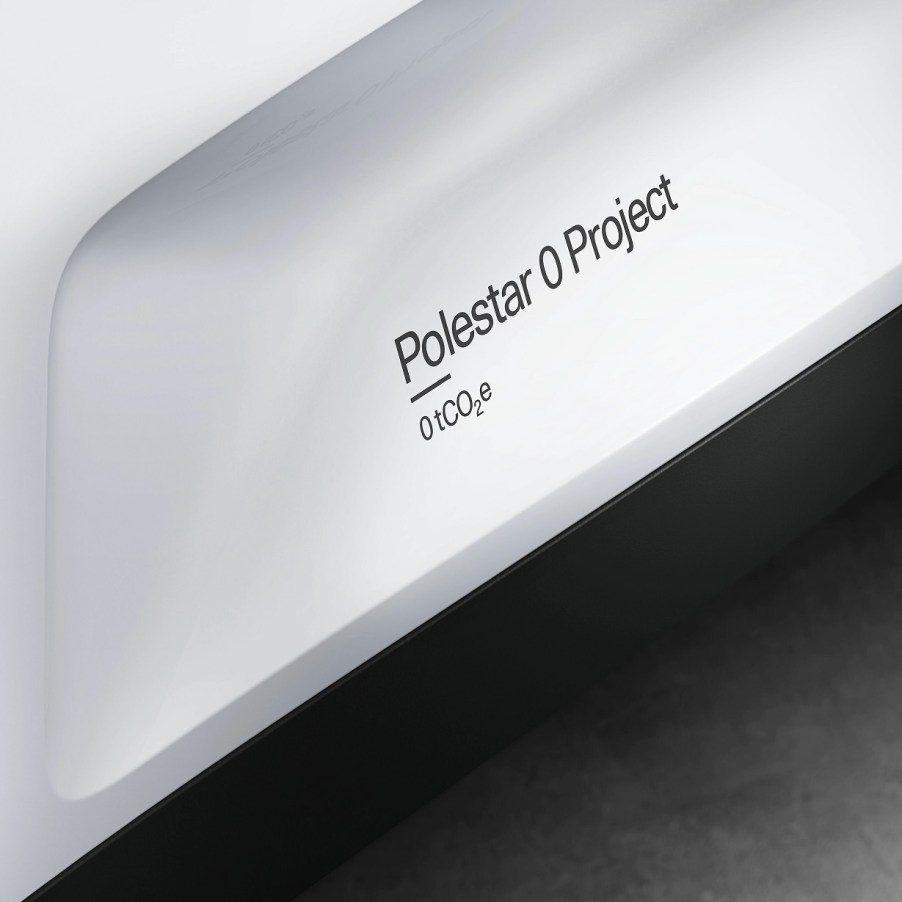
Can Polestar Really Make a Carbon-Neutral Car by 2030?
Although gas-powered cars are slowly being supplanted by EVs, ICE technology will stick around for a while yet. This means that even after EVs go mainstream, we’ll still have to deal with vehicle emissions. And while they’re cleaner, electric cars and trucks carry environmental penalties of their own. However, some automakers are trying to address this; Polestar, with its new ‘0 Project,’ is one of them.
The Polestar 0 Project aims to make the brand carbon-neutral by 2040

Although EVs are cleaner than ICE cars, producing their batteries and the electricity to charge them carries a CO2 cost. So, while electric cars produce fewer emissions overall, they still have a net positive carbon output. A carbon-neutral car, on the other hand, would perfectly offset its lifetime CO2 emissions, CNET explains. So, even if the car itself produces CO2, the automaker’s policies and operations make up for it.
That’s what the Polestar 0 Project aims to do, Motor1 explains. The first part of the 0 Project aims to have Polestar produce a carbon-neutral car by 2030. And the second part sees the entire brand becoming carbon-neutral by 2040, Car and Driver reports. But Polestar isn’t planning on doing this in the ‘traditional’ way.
Normally, carbon neutrality is achieved via offsets like planting trees or buying regulatory credits. However, Polestar claims that, according to life-cycle assessment experts, such techniques aren’t “sustainable in the long run,” Autoweek reports. Brand CEO Thomas Ingenalth even called offsetting “‘a cop-out,'” Autoweek reports.
The Polestar 0 Project, then, doesn’t focus on offsets. Instead, it’s about lowering the emissions associated with building and selling its EVs, Roadshow explains. And Polestar has the data to support this initiative.

According to Polestar’s 2020 sustainability report, Polestar 2 production is more carbon-intensive than Volvo XC40 production. However, even when charged via the relatively ‘dirty’ global electricity mix, the Polestar 2 produces less CO2 than the XC40. Naturally, the company can’t clean up the global electricity supply. But via the 0 Project, Polestar can theoretically clean up its production methods.
It’s not the only company pursuing this goal
As ambitious as the 0 Project is, Polestar isn’t the first company to announce a desire to be carbon-neutral. Last year, Bentley announced it was going fully electric by 2030 in an attempt to be carbon-neutral. And this year, Nissan, GM, and even Airstream all announced similar initiatives. GM, like Polestar, plans to be carbon-neutral by 2040, while Nissan is looking at 2050.
Also, Polestar won’t necessarily be the first company with a carbon-neutral EV. Last year, Volkswagen claimed the ID.3 would be carbon-neutral, Autocar reports. However, VW needed to use both renewable energy and carbon offsets to achieve its goal, Automotive News reports. Airstream’s program also relies on offsets, specifically planting trees. Though, for what it’s worth, Nissan’s and Bentley’s carbon neutrality programs don’t appear to rely on offsets.
Could Polestar become carbon-neutral by 2040?
How realistic is the Polestar 0 Project timeline, then? Unfortunately, that’s a tricky question to answer. But let’s see if we can break it down.
In terms of the first part, making a carbon-neutral car, that’s theoretically possible. Volvo, which owns Polestar, recently signed an agreement to make its trucks out of fossil-fuel-free steel, Autoblog reports. And EV batteries, besides getting cheaper and easier to recycle, are also starting to phase out problematic elements like cobalt. So, having a carbon-neutral Polestar car by 2030 isn’t entirely out of the picture.
As for the second part of the Polestar 0 Project, that’s even harder to predict. Changing a company’s entire production methodology takes a lot of time, money, and energy. As NASCAR team Roush Fenway recently demonstrated, going carbon-neutral isn’t impossible, Autoblog reports. But there’s a noticeable difference between a single racing team and an automaker.

However, there’s at least one automaker with an even more ambitious plan than the Polestar 0 Project. Porsche wants to be completely carbon-neutral by 2030—and it’s already part of the way there, Roadshow reports. The automaker claims its two production facilities are already carbon-neutral thanks to renewable energy sources. And in addition to its synthetic fuel program, Porsche claims the Taycan Cross Turismo will be its first carbon-neutral car, Roadshow reports.
So, as ambitious as it sounds, the Polestar 0 Project might be feasible.
Follow more updates from MotorBiscuit on our Facebook page.


